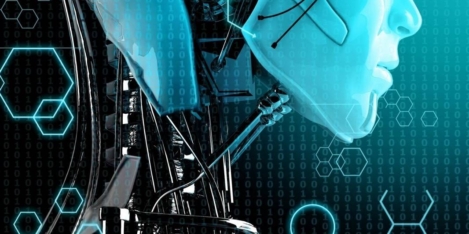March 22, 2017
Employers in industries reliant on overseas workers will be hardest hit by Brexit 0
 Accommodation and food services, manufacturing, and transport industries will be hardest hit by limits on movement of EU and non-EU workers following Brexit, a new report has claimed. The latest edition of Mercer’s Workforce Monitor has highlighted how reliant certain sectors of the UK economy have become on EU-born and non-EU born workers, as respectively, 33 percent, 23 percent and 20 percent of accommodation and food services, manufacturing, and transport are made up of non-UK-born nationals, meaning companies in those sectors, and those reliant on them, are especially at risk from the changes in the UK’s migration policy. According to Gary Simmons, Partner at Mercer, “Since 2013, the UK-born workforce has been declining as people retire and we can see how reliant certain industries are on overseas workers filling the gaps. The UK is likely to impose more stringent migration controls in the future and this will reduce the number of overseas workers available.”
Accommodation and food services, manufacturing, and transport industries will be hardest hit by limits on movement of EU and non-EU workers following Brexit, a new report has claimed. The latest edition of Mercer’s Workforce Monitor has highlighted how reliant certain sectors of the UK economy have become on EU-born and non-EU born workers, as respectively, 33 percent, 23 percent and 20 percent of accommodation and food services, manufacturing, and transport are made up of non-UK-born nationals, meaning companies in those sectors, and those reliant on them, are especially at risk from the changes in the UK’s migration policy. According to Gary Simmons, Partner at Mercer, “Since 2013, the UK-born workforce has been declining as people retire and we can see how reliant certain industries are on overseas workers filling the gaps. The UK is likely to impose more stringent migration controls in the future and this will reduce the number of overseas workers available.”



























 Very few organisations are ready to manage a workforce where the latest technologies and people work side by side. Just 13 percent of UK companies are ready to respond to digital disruption and create “the organisation of the future”; despite 88 per cent believing this has become a priority. This is according to the 2017 Deloitte Global Human Capital Trends survey, which tracks the top trends shaping the agenda for HR and business leaders. However, while UK companies believe they are ill-prepared for the change brought by digital disruption, this has not stopped many of them from embracing disruptive technologies. 42 per cent report that they have adopted robotics, cognitive and artificial intelligence (AI) technologies within all or parts of their workforce. Another 42 per cent are running pilots in certain areas of their organisation. But only 16 per cent say they are ready to manage a workforce with people, robots and AI working side by side.
Very few organisations are ready to manage a workforce where the latest technologies and people work side by side. Just 13 percent of UK companies are ready to respond to digital disruption and create “the organisation of the future”; despite 88 per cent believing this has become a priority. This is according to the 2017 Deloitte Global Human Capital Trends survey, which tracks the top trends shaping the agenda for HR and business leaders. However, while UK companies believe they are ill-prepared for the change brought by digital disruption, this has not stopped many of them from embracing disruptive technologies. 42 per cent report that they have adopted robotics, cognitive and artificial intelligence (AI) technologies within all or parts of their workforce. Another 42 per cent are running pilots in certain areas of their organisation. But only 16 per cent say they are ready to manage a workforce with people, robots and AI working side by side.








March 15, 2017
Mobile and internet connectivity should be a priority for commerical real estate 0
by Sara Bean • Comment, Facilities management, News, Property, Technology
Cluttons has proposed that a mobile coverage rating should be added to lettable workspace criteria, because despite mobile and internet connections being the fifth essential utility for the modern environment they are often overlooked when leasing space. With the rise of dependence on SIM-based equipment, the property firm argues that workplaces should be let with a coverage rating, measuring connectivity within a property. It argues that given the fast-paced evolving nature of the sector, landlords who invest in excellent telephony infrastructure are likely to secure tenants for longer periods and potentially achieve higher rental values. The approach is being borne out by the government recognising the importance of better mobile and internet infrastructure, by making it a focal point to extend superfast broadband to 95% of the UK by the end of 2017. This comes as no surprise given that several emerging markets are leap-frogging the adoption of technology and are quickly outpacing the UK in the sophistication of infrastructure on offer to occupiers. London is ranked near to the bottom of the internet connectivity league table when looking at Europe.
(more…)